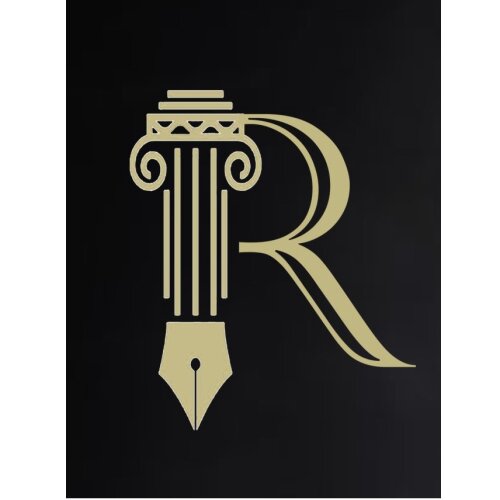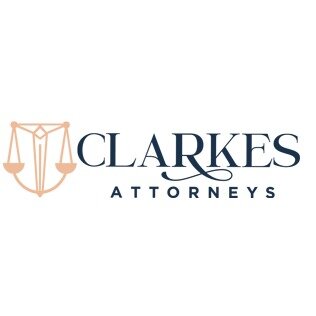Best Constitutional Law Lawyers in Lilongwe
Share your needs with us, get contacted by law firms.
Free. Takes 2 min.
List of the best lawyers in Lilongwe, Malawi
About Constitutional Law in Lilongwe, Malawi
Constitutional Law in Lilongwe, Malawi, is governed by the Constitution of Malawi, which is the supreme law of the land. This legal framework establishes the structure, procedures, powers, and duties of the government, and guarantees fundamental rights and freedoms for its citizens. Since the adoption of the current constitution in 1994, following the transition to a democratic government, Constitutional Law has played a critical role in shaping Malawi's legal and political landscape.
Why You May Need a Lawyer
There are a variety of situations where individuals and organizations may require the expertise of a Constitutional Law lawyer. Common scenarios include:
- Protection of Rights: If you believe your constitutional rights have been violated, consulting a lawyer can help you understand your options for legal recourse.
- Challenging Legislation: You may wish to challenge a law or policy that you believe is unconstitutional.
- Electoral Issues: Disputes related to elections and the right to vote often require specialized legal advice.
- Freedom of Expression and Assembly: Legal guidance may be necessary if you face restrictions on speech or organizing activities.
- Public Administration: Legal issues involving government powers and duties often require constitutional interpretation and advice.
Local Laws Overview
Constitutional Law in Lilongwe, Malawi, consists of several key aspects:
- Bill of Rights: This section of the constitution guarantees fundamental human rights such as freedom of expression, assembly, and association, and is essential in protecting citizens against governmental abuse.
- Separation of Powers: The constitution delineates the separation of powers among the executive, legislative, and judicial branches, ensuring a checks and balances system to prevent abuse of power.
- Role of the Judiciary: The judiciary interprets the constitution and plays a crucial role in ensuring that laws and policies comply with constitutional provisions.
- Decentralization: The constitution provides for a decentralized government structure, allowing local governments to have a significant role in governance.
- Electoral System: The constitutional framework outlines the electoral system and the conduction of free and fair elections.
Frequently Asked Questions
What is the importance of the Constitution of Malawi?
The Constitution of Malawi serves as the supreme legal document that defines the structure of the government, guarantees citizens' rights, and provides the foundation for all other laws.
How can I tell if my constitutional rights have been violated?
If you suspect that your rights have been violated, it is advisable to consult a lawyer who specializes in Constitutional Law to assess your situation and discuss potential legal remedies.
What role does the judiciary play in Constitutional Law?
The judiciary interprets and applies the constitution, ensuring that laws and governmental actions are in compliance with constitutional requirements.
Can the constitution be amended? If so, how?
Yes, the constitution can be amended. However, the process usually requires a significant consensus, such as a parliamentary supermajority, and sometimes a referendum, depending on the type of amendment.
What are some common constitutional challenges in Malawi?
Challenges often involve issues related to human rights, electoral disputes, separation of powers, and checks and balances within the government.
How do I challenge a law that I believe is unconstitutional?
To challenge a law, you typically need to file a lawsuit in court, where a judge will review the law's compliance with constitutional provisions.
Are there organizations that can help with constitutional issues?
Yes, there are non-governmental organizations, legal aid centers, and human rights advocacy groups that assist individuals with constitutional issues.
What is the process for seeking legal recourse for constitutional violations?
The process generally involves consulting with a legal expert, gathering evidence, and potentially filing a lawsuit in court.
What kinds of electoral issues might require constitutional legal advice?
These include issues with voter registration, election results, campaign regulations, and candidate eligibility.
How does decentralization affect local governance in Lilongwe?
Decentralization allows local governments in Lilongwe more autonomy in decision-making and resource allocation, promoting more accountable and effective governance.
Additional Resources
Several resources and organizations can provide support and information concerning Constitutional Law in Lilongwe, Malawi:
- The Malawi Law Society: Offers legal assistance and resources related to various areas of law, including constitutional matters.
- Malawi Legal Aid Bureau: Provides legal aid services to those who qualify, particularly focusing on human rights and constitutional law.
- Human Rights Consultative Committee (HRCC): A network of NGOs aiming at promoting and protecting human rights in Malawi.
- University of Malawi Faculty of Law: Offers legal clinics and resources that can be beneficial for understanding constitutional issues.
- Office of the Ombudsman: Investigates maladministration and provides redress under the constitution.
Next Steps
If you find yourself in need of legal assistance regarding Constitutional Law in Lilongwe, consider taking the following steps:
- Identify the Issue: Clearly define your constitutional concern or legal question.
- Consult a Lawyer: Seek advice from a qualified constitutional lawyer to understand your rights and options.
- Gather Evidence: Collect relevant documents, records, and information that support your case.
- Submit a Legal Request: If necessary, file a complaint or lawsuit with the appropriate legal body, guided by your lawyer.
- Utilize Resources: Engage with legal aid services or relevant organizations for additional support and advice.
These steps will help you navigate legal processes and seek resolution for your constitutional concerns in Lilongwe, Malawi.
Lawzana helps you find the best lawyers and law firms in Lilongwe through a curated and pre-screened list of qualified legal professionals. Our platform offers rankings and detailed profiles of attorneys and law firms, allowing you to compare based on practice areas, including Constitutional Law, experience, and client feedback.
Each profile includes a description of the firm's areas of practice, client reviews, team members and partners, year of establishment, spoken languages, office locations, contact information, social media presence, and any published articles or resources. Most firms on our platform speak English and are experienced in both local and international legal matters.
Get a quote from top-rated law firms in Lilongwe, Malawi — quickly, securely, and without unnecessary hassle.
Disclaimer:
The information provided on this page is for general informational purposes only and does not constitute legal advice. While we strive to ensure the accuracy and relevance of the content, legal information may change over time, and interpretations of the law can vary. You should always consult with a qualified legal professional for advice specific to your situation.
We disclaim all liability for actions taken or not taken based on the content of this page. If you believe any information is incorrect or outdated, please contact us, and we will review and update it where appropriate.










